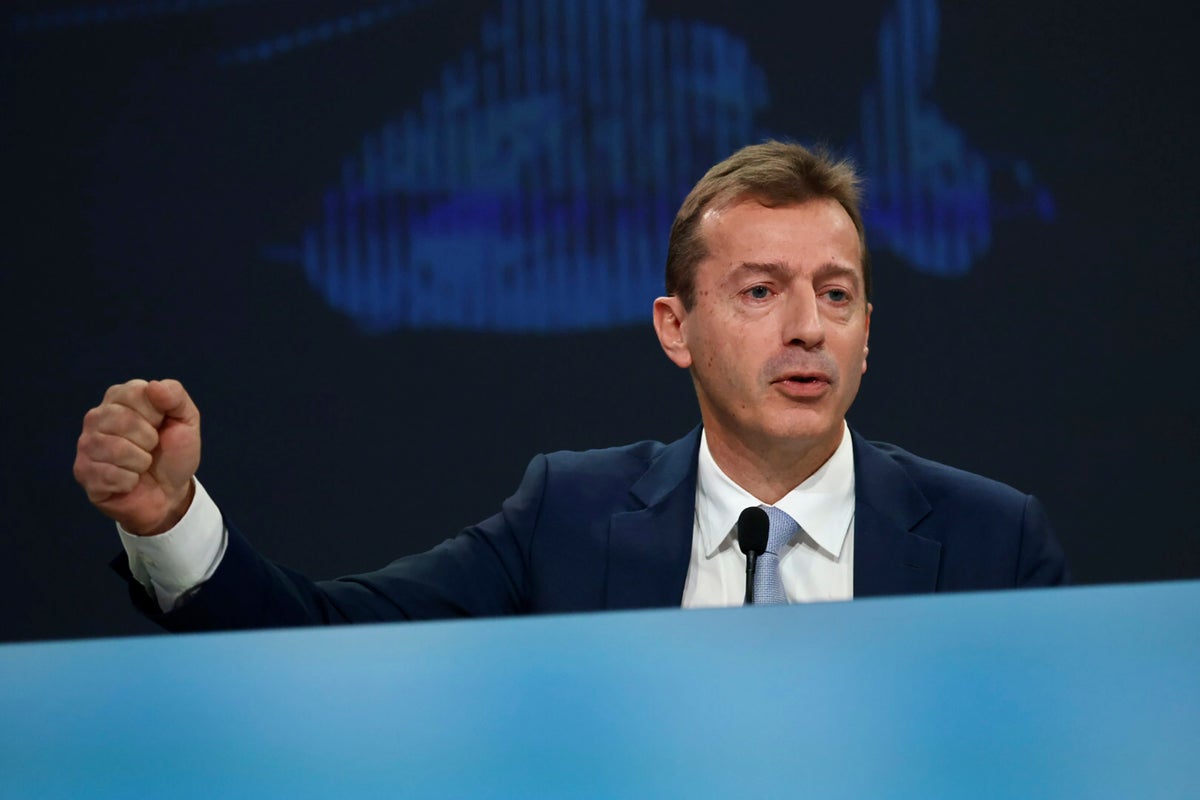
Airbus is urging stepped-up European cooperation to ensure the continent’s security and future access to space after a year that saw the company suffer fallout from Russia’s war in Ukraine and the crash of a European satellite launcher.
The France-based plane maker on Thursday reported a record overall 2022 profit of 4.25 billion euros ($4.55 billion), up from 4.21 billion euros the year before, despite inflation challenges and supply chain disruptions that slowed efforts to ramp up aircraft production.
CEO Guillaume Faury said the company aims to deliver 720 planes this year, up from 661 last year, in an effort to keep up with growing demand by airlines as travel picks up worldwide following pandemic disruptions.
On Tuesday, Air India unveiled an massive order that included 250 Airbus passenger jets. Airbus didn't disclose financial terms of the deal, which could be worth tens of billions of dollars.
Airbus took in 820 orders in 2022 and reported revenue of 58.8 billion euros ($63 billion). U.S. rival Boeing has lagged behind Airbus in deliveries but has been closing the gap, reporting 774 orders and 480 deliveries last year.
Both companies are struggling with shortages of engines and other supply chain issues that limit how fast they can build and deliver planes.
The Airbus Defence and Space business struggled last year, notably taking a 477 million euro ($511 million) loss on the long-troubled A400M military transport plane, in part linked to unusually high inflation.
Faury said the European space sector also was hit by the loss of access to Russia's Soyuz rocket launchers and the failure of a new Vega-C rocket soon after takeoff from French Guiana in December. The Vega-C is made by Arianespace, part owned by Airbus.
“Europe’s independent access to space is now fundamentally challenged," Faury told reporters in Toulouse.
The last year “has proven the need for a stronger Europe in defense and space ... to maintain the peace, stability and security which our societies have become used to," Faury said.
While pledging that Airbus is on track to meet promises to reduce the industry's heavy carbon emissions, he added: “There is no sustainability without security.”
He noted that Airbus planes operated by Russian airlines no longer have access to parts or maintenance provided by the company because of Western sanctions aimed at punishing Moscow for its invasion of Ukraine.
“We start to hear about situations where they are missing parts or components or an inability to keep some of the planes in flight," Faury said. “But we are not speaking with the Russian airlines. We miss visibility. And yes, we are we are slightly concerned about the way the planes are operated, but we have no real means to act."
Airbus is still buying titanium from Russia but looking for other suppliers, Faury said, adding that “it will still take some time to be fully independent from the Russian sources.”
Shares in Airbus, which employs 134,000 people worldwide, were trading up 3% on Thursday morning after the annual results.







